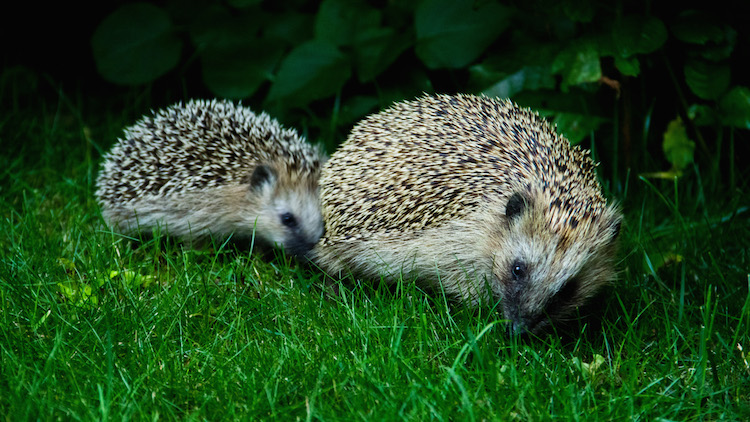
Pic: Wikimedia Commons
Hedgehogs have disappeared from Hackney. A recent report from the council revealed that there have been no hedgehog sightings in the borough since 2002.
The iconic mammals, once a welcome addition to any garden, have decreased in numbers nationwide by 30% in the last 10 years – the same rate that tigers are disappearing from the wild.
Ian Tokelove, from the London Wildlife Trust, spoke to ELL about the challenges that hedgehogs and other British wildlife face in the city. “Hedgehogs face many barriers – we all know a road isn’t their best friend. Bonfire night is also particularly dangerous for them too – they often look for shelter in bonfires so always check before lighting,” he said.
“Many people don’t realise that London is very rich in wildlife; granted we don’t have herds of wildebeest migrating through the capital, but we have so many incredible species right on our doorstep. Peregrine falcons prey on pigeons in the capital, bats are prevalent through summer and autumn, the Thames supports over 120 species of fish and even seals have been spotted near Canary Wharf!”
“We opened Woodberry Wetlands in Hackney in April earlier this year, along with Sir David Attenborough – the area is an operational reservoir but also has been managed to ensure it is suitable for wildlife. We also have an information centre there so the public can understand more about the biodiversity in the city.”
But these ecosystems are being threatened by continuing urbanisation and our increasingly nature-phobic lifestyles.
So what are people do to help the capital’s threatened wildlife? “There’s no shortage of things residents can do to help,” said Tokelove.
“If you have a garden, let a little patch of it go wild, leave a small opening in your fence to allow hedgehogs to come into your garden, a pond will encourage frogs, toads and maybe even newts – it’s lazy gardening if you think about it, but it can be very beneficial to the ecosystem.”
Of course, whilst London is no doubt highly urbanised, there are patches of natural spaces that support a number of animals and wild plants vital to the ecosystem – and these natural spaces are just as important for humans as the animals they support.
A study by Natural England earlier this year found that found that taking part in nature-based activities can be contribute to a reduction in levels of anxiety, stress and depression.
“It’s been proven that nature is good for us,” said Tokelove.
“Trees can help to muffle noise pollution, as well as protect us from flooding, and going to natural spaces can be excellent for our mental wellbeing.”
With this evidence, it seems it is even more imperative for us to protect our natural spaces and it’s inhabitants – not just for their sake, but for ours too.





I am looking after three male hedgehogs which were undersized before feeding up, with the strong possibility of teaming them up with three females before release. My hope is to release them into an appropriate part of a wildlife area in east london/ middlesex. this would be with a starter pack of a favoured hedgehog house (own design) and regular water and hedgehog food provision. The area needs to have the necessary earthworm, slug, invertebrate, old logs, hedges or woody undergrowth and scrub and access to water, especially in summer. It should lack litter, industrial machinery, little daytime human presence, and where roads are nearby they should be 20mph and/or be difficult to access. Hedgehogs are a bit dim when it comes to preserving themselves, and are quite independent, so lack animal community boards which say ‘don’t go there, don’t climb that’. I see no reason why these animals can’t be moved from increasingly dangerous areas of the country to nature reserves, making sure female numbers are maintained, with a view to breeding, much like happens in Africa. We have to do something now, rather than wringing our hands and repeatedly saying their numbers are diminishing.